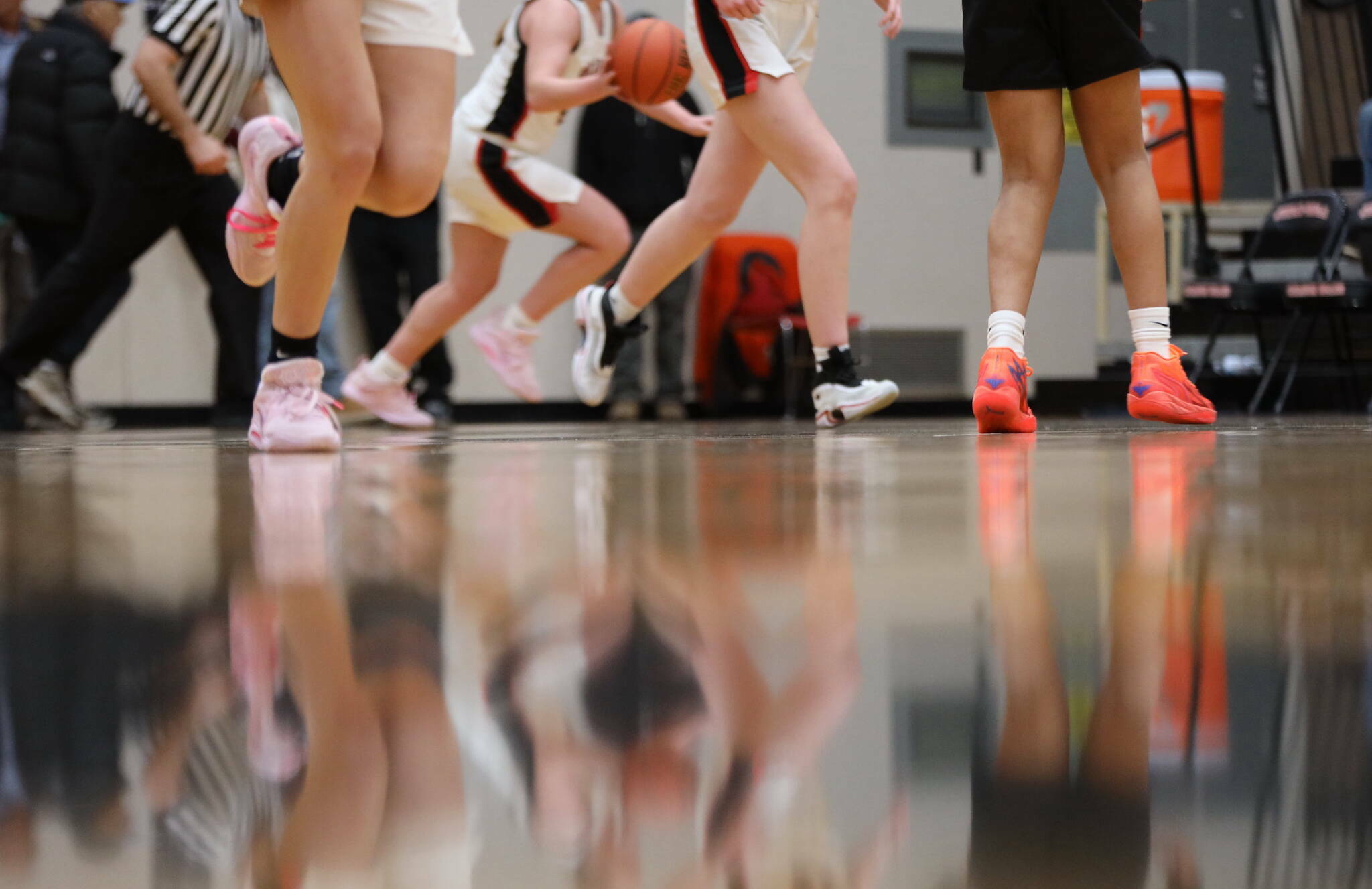A ban on transgender girls playing on girls high school sports teams officially took effect on Saturday, but local and statewide education officials are still largely figuring out if they’ll comply with the policy — and what the options are for implementing or challenging it, officials said during a Juneau Board of Education meeting Tuesday.
The discussion during the meeting suggested local officials are inclined to either challenge the ban or ignore it until a relevant situation arises, since there are apparently no students at present who would be affected by the policy. Officials with the school district and city attorney’s office also agreed the new policy violates local statutes as well as possibly the Alaska Constitution’s privacy clause.
[Legal, moral concerns raised by local school and city officials about state’s transgender sports ban]
The ban was among the prominent topics discussed by school officials statewide at the annual Association of Alaska School Boards conference in Anchorage last week, according to local school board members who were among the attendees.
“I’ve never seen such unity against a policy in any state in education like I’ve seen with this one,” said Emil Mackey, the Juneau school board’s vice president.
Governing bodies in at least two school districts in Alaska — the Matanuska-Susitna Borough School Board and Kenai Peninsula Borough Assembly — have approved actions implementing or supporting a transgender sports ban. But Mackey said he didn’t hear any comments from officials supporting the ban during the conference.
Among the actions education officials statewide are doing is keeping an eye on legal cases involving similar laws in the Lower 48, with Idaho cited as a particular example after its governor signed the first such law in 2020. About half of the states in the U.S. have passed similar laws related to athletics at the K-12 and/or college level.
The policy approved Oct. 10 by the Alaska School Activities Association avoids some of the most contentious provisions seen in other states, Emily Wright, an assistant attorney for the City and Borough of Juneau, told school board members.
“The cases we’re seeing in Lower 48 are typically K-12,” she said, noting ASAA revised its version to apply to high school students only. “And they include very invasive identification of gender. And there’s also usually no alternative — so you’re either a boy or girl.”
Alaska’s policy also bases gender identification on birth certificates, rather than medical evaluations such as a blood or hormonal test, Wright said.
The policy isn’t an outright ban on transgender athletes in high school sports. Instead it would allow multiple divisions to be established, with one exclusively for “females who were assigned female at birth,” with transgender girls eligible to compete in a coed or boys team.
Among the options presented in a document to board members for Tuesday’s meeting, based on a discussion of the issue during the board’s last meeting in October, are:
• Continue following current JSD policies and regulations that allow students to participate in activities in a manner consistent with their gender identity consistently expressed at school. Among the reasons cited in favor are “JSD administration is not aware of any (existing) violation of the new ASAA bylaw/policy” and the district could request a waiver from ASAA on behalf of a student if a violation is reported. However, it also means a violation could result in fines, forfeitures of games and/or exclusion from ASAA-sanctioned activities.
• Align with the ASAA policy stating participation in female sports is limited to students who were “assigned female at birth.” The report to school board members states “this change would directly violate Board of Education Policy and may also contradict CBJ code and the Alaska Constitution.” Also, “this change would reverse the district’s long-standing practice of acceptance, equity, and inclusiveness…(and) restricts participation from one specific group of students.”
• Exit ASAA. Such a decision would allow the district to “maintain (a) nondiscriminatory approach to participation in sports,” but would also require finding competition “outside the traditional high school sports infrastructure” and “could jeopardize athletes’ future opportunities.”
• Participate in ASAA activities with coed/open teams only. The memo suggests this option could “limit opportunities and restrict participation from specific groups of students,” as well as “jeopardize athletes’ future opportunities.”
The school board’s next scheduled meeting is Dec. 12 and the preliminary agenda approved Tuesday does not include the policy as an action item, instead focusing on matters such as legislative priorities for the upcoming legislative session that starts in January and revisions to the budget for the current fiscal year.
While many local and state officials are taking a deliberative approach to the new policy, with the possibility of waiting for a situation to arise that would result in a legal challenge, concern was expressed Tuesday about making one or more specific students the focus of such a challenge.
“One of the concerns that was pretty unanimous among the districts is that we don’t want a student to have to front and bear the weight of the case,” Mackey said. “Especially when it’s clearly unconstitutional. It’s unconstitutional under the 14th Amendment. It’s unconstitutional under our right to privacy. It’s unconstitutional, I would say, under our education language. So what we posed with no solution was why can’t we just go ahead and just file a preliminary injunction to get this thing quashed before any student has put their name on it, based upon that unconstitutionality?”
A party has to have legal standing to file a lawsuit against the policy, Wright said. She said that certainly could apply to a student directly affected — and it is likely there are some “that would happily stand up for this” — but there are possible options for the district in terms of “institutional standing” due to penalties that might be incurred for noncompliance.
• Contact Mark Sabbatini at mark.sabbatini@juneauempire.com or (907) 957-2306.

